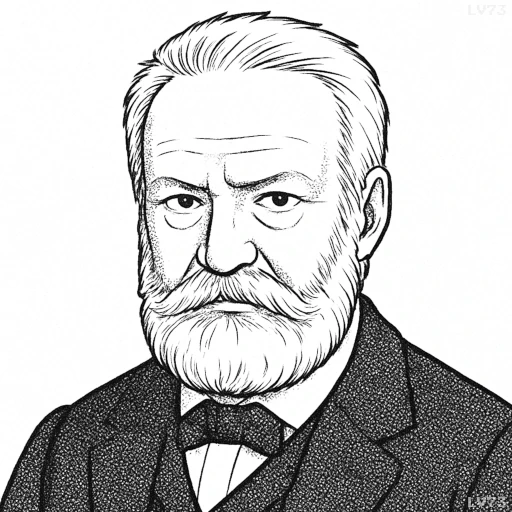“There are thoughts which are prayers. There are moments when, whatever the posture of the body, the soul is on its knees.”

- February 26, 1802 – May 22, 1885
- Born in France
- Author, poet, playwright
table of contents
Quote
“There are thoughts which are prayers. There are moments when, whatever the posture of the body, the soul is on its knees.”
Explanation
In this quote, Victor Hugo suggests that prayer is not just a physical act or a formal ritual, but can be a deeply spiritual and internal experience. He argues that thoughts can be as powerful and meaningful as traditional prayers, and that there are moments when the soul feels a profound connection to the divine or to something greater than itself, even if the body is not physically kneeling. The essence of prayer, in Hugo’s view, is not confined to outward gestures, but is rooted in the intentions, humility, and sincerity of the soul. Even in moments when the body is engaged in daily life, the soul can be in a state of devotion, reflection, or gratitude, much like a prayer.
Hugo’s words reflect his belief in the interior life and the idea that true spirituality is not limited to external acts or religious rituals, but is expressed through thoughts, feelings, and consciousness. It suggests that prayer is a form of connection with the divine or the higher self, which transcends physical actions and speaks to the heart and mind.
In modern terms, this quote encourages us to recognize that spirituality and prayer are not just about rituals or formal practices, but can also be moments of quiet reflection or intention in our everyday lives. It reminds us that true devotion comes from the heart, and even without physical gestures, our thoughts and soul can be in a state of prayer—focused on love, gratitude, or seeking a deeper connection to something beyond ourselves.
Would you like to share your impressions or related stories about this quote in the comments section?


